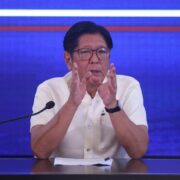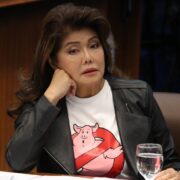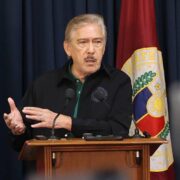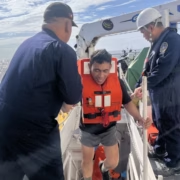Is a nuclear-free world possible?

The third meeting of State Parties to the Treaty on the Prohibition of Nuclear Weapons (TPNW) held at the United Nations headquarters in New York from March 3 to 7, called for “strengthening the commitment to a world free of nuclear weapons amidst rising global instability.” It also noted “the growing dangers of nuclear proliferation,” and said that the “potentially devastating nuclear arms race demand immediate and decisive action from the international community.”
Philippine Permanent Representative to the United Nations, Ambassador Antonio Lagdameo meanwhile urged more states to ratify the nuclear weapons ban treaty to universalize the accord. “The Philippines remains steadfast in its commitment to work collaboratively with all States toward the realization of a nuclear-weapon-free world,” he added.
But is a nuclear-weapon-free world possible?
Personally, and for the sake of the generations that follow us, I hope it becomes not just a possibility but also a reality. However, under present circumstances, I find it difficult to see it happening in my lifetime.
Following its entry into force in 2021, only 73 parties including the Philippines have ratified the Treaty. At the third meeting of State Parties, none of the Nato member countries participated as observers, despite some of them observing the previous two meetings.
The Japanese government was criticized by civil society groups, including the 2024 Nobel Peace Prize winner Nihon Hidankyō (Japan Confederation of A- and H-Bomb Sufferers Organizations) for failing to participate, even just as an observer. Despite being the only country to have nuclear weapons used against it and its people, Japan has declined from signing on to the TPNW on the grounds that, without the participation of any of the nuclear-weapon states, it offers no practical path to denuclearization.
Current geopolitical realities likewise don’t provide incentives or conditions that would make nuclear-weapon states consider disarming their nuclear arsenals. The Budapest Memorandum of 1994 signed by the United States, United Kingdom, and Russia provided security guarantees to Ukraine in exchange for the latter giving up the third largest nuclear arsenal in the world at the time. The signatories of the memorandum pledged to respect Ukraine’s territorial integrity and the inviolability of its borders, and to refrain from the use or threat of military force. Those security guarantees weren’t worth the paper it was signed on when Russia invaded and took Crimea from Ukraine in 2014 and got away with it. The Budapest Memorandum was supposed to serve as a key moment in the nuclear arms control movement as well as an important example of international dispute resolution, especially in the context of relations between powerful States. Instead, what happened is that it “set a dangerous precedent that undermined confidence in the very idea of nuclear disarmament.”
To make matters worse, a significant shift in American geopolitics under the Trump administration that has raised questions on US commitment to its alliances, particularly in Europe, has led to France offering to extend its nuclear deterrent to other European nations. Meanwhile, Poland is considering options for nuclear weapons. It is worth noting that Poland is a signatory of the Nuclear Weapons Non-Proliferation Treaty.
Perhaps the war in Ukraine has shown Poland and others the reality that “nuclear powers can attack an adversary with conventional capabilities, while backing its actions with nuclear threats to deter third-party intervention.” Will Japan or South Korea likewise come to the same conclusion and feel a similar need to develop their own nuclear deterrence? I guess that will depend on how confident they feel about American commitment to their defense interests given their reliance on the US nuclear deterrence in the region.
From the look of things, it seems likely that we have to get used to having the specter of nuclear weapons hanging above our heads for quite some time. The possibility of increased proliferation in the Indo-Pacific region is not remote either.
Perhaps we can take some small consolation in that within our immediate neighborhood, the Southeast Asian Nuclear Weapon-Free Zone ensures that at the very least, the Philippines and its fellow Asean member states are committed to keeping it safe and free from nuclear weapons. In the meantime, even while it may seem a futile effort considering current developments, the Philippines should continue to work with like-minded countries in international fora to rid the world of nuclear weapons. Whether we eventually succeed or not, at least future generations of Filipinos will know that we did our part in trying to make the world a safer and better place.
—————-
Moira G. Gallaga has served three Philippine presidents as presidential protocol officer and held diplomatic posts at the Philippine Consulate General, LA, and the Philippine Embassy in Washington.

















The economic potential of PH coconut and abaca